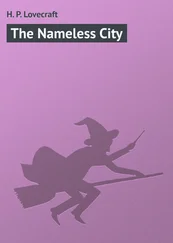Maurus Jokai - The Nameless Castle
Здесь есть возможность читать онлайн «Maurus Jokai - The Nameless Castle» весь текст электронной книги совершенно бесплатно (целиком полную версию без сокращений). В некоторых случаях можно слушать аудио, скачать через торрент в формате fb2 и присутствует краткое содержание. Город: New York, Год выпуска: 1898, Издательство: Doubleday, Page & Company, Жанр: Историческая проза, на английском языке. Описание произведения, (предисловие) а так же отзывы посетителей доступны на портале библиотеки ЛибКат.
- Название:The Nameless Castle
- Автор:
- Издательство:Doubleday, Page & Company
- Жанр:
- Год:1898
- Город:New York
- ISBN:нет данных
- Рейтинг книги:4 / 5. Голосов: 1
-
Избранное:Добавить в избранное
- Отзывы:
-
Ваша оценка:
- 80
- 1
- 2
- 3
- 4
- 5
The Nameless Castle: краткое содержание, описание и аннотация
Предлагаем к чтению аннотацию, описание, краткое содержание или предисловие (зависит от того, что написал сам автор книги «The Nameless Castle»). Если вы не нашли необходимую информацию о книге — напишите в комментариях, мы постараемся отыскать её.
The Nameless Castle — читать онлайн бесплатно полную книгу (весь текст) целиком
Ниже представлен текст книги, разбитый по страницам. Система сохранения места последней прочитанной страницы, позволяет с удобством читать онлайн бесплатно книгу «The Nameless Castle», без необходимости каждый раз заново искать на чём Вы остановились. Поставьте закладку, и сможете в любой момент перейти на страницу, на которой закончили чтение.
Интервал:
Закладка:
It was while he was oppressed with these gloomy thoughts that his spy and scout suddenly appeared before him. Noah in his ark had not looked more longingly for the dove than had he for his brave Matyas.
“Well, Master Matyas, what news?”
“All sorts, Herr Count.”
“Good or bad?”
“Well, mixed. Both good and bad. I will leave the good till the last. To begin: Poor Satan Laczi was buried yesterday—may God have mercy on his sinful soul! They fired three salvos over his grave, and the primate himself said the prayers for his soul. If Satan Laczi himself could have seen it all, he could hardly have believed that so much honor would be shown to his dead body. Poor Laczi! His last words were a greeting to his kind patron.”
“His life closed well!” observed the count. “He got what he longed for—a soldier’s death. But tell me what you know about Raab.”
“I know all about it. I come from there.”
“Ah, did you see them? Has not the enemy besieged the city?”
“Yes; the city as well as the fortress is in the hands of the enemy, and the baroness and the princess are both in it.”
“Who told you to call her a princess?” demanded Count Vavel, his face darkening.
“I will come to that all in good time,” composedly replied Matyas, who was not to be hurried. “Colonel Pechy,” he went on, “bravely defended the fortress for ten days against the Frenchmen; but he had to yield at last—”
“Where are Katharina and Marie?” impatiently interrupted Vavel. “What became of them when the city capitulated?”
“All in good time, Herr Count, all in good time! I can tell you all about them, for I am just come from them.”
“Were they in any danger?”
“Danger? No, indeed! When the city surrendered they were concealed in a house where they passed as the nieces of the Herr Vice-palatine Görömbölyi.”
“Is the vice-palatine with them now?”
“Certainly. He has surrendered, too.”
“Excellent man! Who commands the Frenchmen at Raab?”
“General Guillaume—”
“General Guillaume?” excitedly interrupted Vavel.
“Yes, certainly; Guillaume—that is his name. And he is a very polite gentleman. He does not ill-treat the citizens; on the contrary, the very next day after he entered the city he gave a ball in the large hotel, and invited all the distinguished citizens with their wives and daughters. The Herr Count’s dear ones also received an invitation.”
“As the nieces of the vice-palatine, of course?”
“Not exactly! I saw the invitation-card, and it was to ‘Madame la Comtesse de Alba, avec la Princesse Marie.’ ”
“Princess Marie?” echoed Vavel.
“As I tell you; and that is how I come to know she is a princess.”
Vavel’s brain seemed paralyzed. He could not even think.
“The vice-palatine,” nonchalantly continued Matyas, “protested that a mistake had been made; but the French general replied that he knew very well who the ladies were, and that he had received instructions how to treat them. From that day, two French grenadiers began to guard the baroness’s door, day and night, just exactly as if they were standing guard over a potentate.”
Vavel paced the floor, mute with rage and fear.
“Why did I desert them!” he exclaimed at last, in desperation. “Why did I not do as Marie wished—flee with her and Katharina into the wide world—we three alone!”
“Well, you see you did n’t, and this is the way matters stand now,” responded Master Matyas. “The general’s adjutant visits the house twice every day to inquire after the ladies; then he reports to his superior.”
“If only Cambray had not died!” ejaculated the count.
“Yes, but I helped to bury him, too,” added Matyas, shaking his head.
“Yes, so I was told. How did you manage to get the body from behind the metal screen?”
“Oh, that was easy enough. You know the spring is connected with the bell in your study; when the screen unrolled, the bell rang. It was only necessary to reverse the operation: by pulling the bell-wire in the Herr Count’s study the screen was rolled up.”
“A very simple arrangement, indeed,” observed Count Vavel, smiling in spite of his gloom. “Ah, Master Matyas, if only you were clever enough to open for me the locks which now imprison my dear ones! That would be a masterpiece, indeed!”
“I can do that easily enough,” was the confident rejoinder.
“You can? How?”
“Didn’t I say I would leave the good news until the last?”
“Yes, yes. Tell me what you have in view.”
“I must whisper the secret in your ear; I have often overheard important secrets listening at the keyhole or while hiding under a bed, and what I have done another may be doing.”
Vavel bent his head so that Master Matyas might whisper the important information in his ear.
The words were few, but they served to restore Vavel to a cheerful mood.
He laughed heartily, slapped Master Matyas on the shoulder, and exclaimed:
“You are truly a wonderful fellow!” Then he took a roll of bank-notes from his pocket, and pressed it into Matyas’s hand. “Here—take these, and buy what is necessary. We will make the attempt at once.”
Master Matyas thrust the money into his own pocket, and darted from the room as if he had stolen it. Ludwig hastened to his general, to beg for leave of absence.
CHAPTER II
“Everything is ready,” said Master Matyas to Vavel, pointing toward three covered luggage-wagons, which the Volons had captured from the Frenchmen at Klein-Zell.
The “Death-head troop,” as Vavel’s Volons were designated, marched in the rear of the brigade; consequently they could drop out from it any time without attracting special notice.
To-day the brigade marched toward Palota, and the Volons turned into the road which led to Zircz. They seemed, however, to have been swallowed up by the Bakonye forest, for nothing was seen again of them after they entered it. The inhabitants of Ratota still repeat tales of the handsome troopers—every man of them a true Magyar!—who rode through their village to the sound of the trumpet, nodding to the pretty girls, and paying gold coin for their refreshment at the inn. But the dwellers in Zircz complained that, instead of Magyar troopers, a squad of hostile cavalry passed through their village—Frenchmen in blue mantles, with cocks’ feathers in their helmets, with a commandant who had given all sorts of orders that no one could understand. Luckily, the prior of the Premonstrants could speak French, and he acted as interpreter for the French commandant. And everybody felt relieved when he marched farther with his troop.
These were the transformed Volons. They had exchanged their crimson shakos in the dense forest for the French helmets, and wrapped themselves in the blue mantles taken from the luggage-wagons. No one would have doubted that they were French chasseurs —even the trumpeter sounded the calls according to the regulations in the armies of France.
Master Matyas hurried on in advance of the troop to learn if the way was clear. It would have been equally unpleasant to have met either Hungarian or French soldiery. They encountered neither, however; and at daybreak on the second day arrived at the village of Börcs, on the Rabcza, where is an interesting monument of times long past—a redoubt of considerable extent, in the center of which stands the village church.
Vavel’s troop camped within this redoubt, where they could escape attracting attention. The country about them, for a long distance, was occupied by French troops.
The highway which led to Raab might be seen from the steeple of the church, and here Vavel took up his station with a field-glass.
Читать дальшеИнтервал:
Закладка:
Похожие книги на «The Nameless Castle»
Представляем Вашему вниманию похожие книги на «The Nameless Castle» списком для выбора. Мы отобрали схожую по названию и смыслу литературу в надежде предоставить читателям больше вариантов отыскать новые, интересные, ещё непрочитанные произведения.
Обсуждение, отзывы о книге «The Nameless Castle» и просто собственные мнения читателей. Оставьте ваши комментарии, напишите, что Вы думаете о произведении, его смысле или главных героях. Укажите что конкретно понравилось, а что нет, и почему Вы так считаете.












